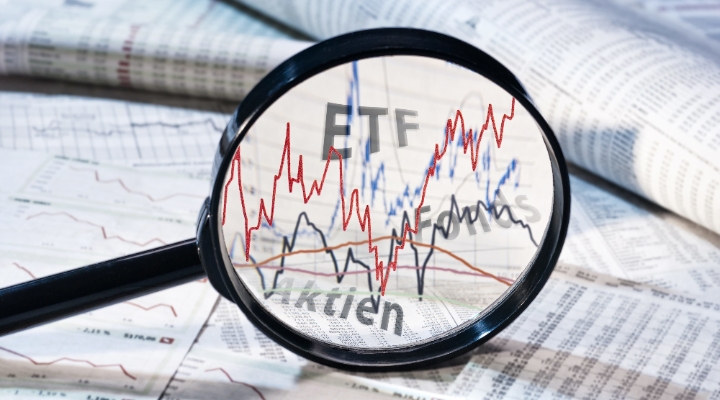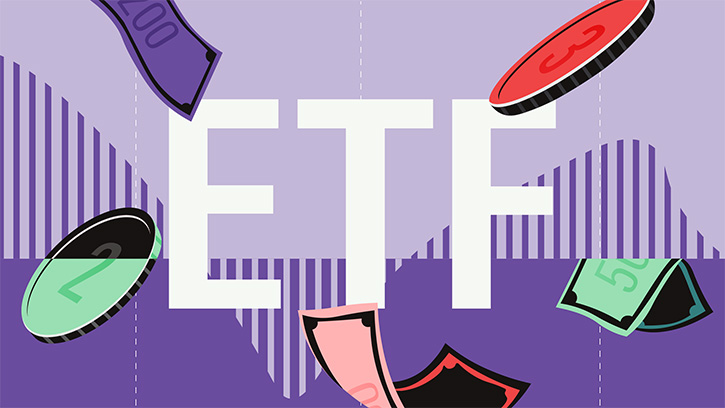
The iShares Euro Corporate Bond 1-5yrs and 0-3yrs ESG ETFs are among the largest in the short-term euro corporate bond category. Both recently had their ratings downgraded by Morningstar analysts.
Their Medalist Ratings, which summarises a forward-looking assessment of the strategies analysed, have dropped from Silver to Bronze, i.e. down one grade, although both remain in positive territory. What happened?
"The accuracy of duration makes index-tracking strategies ideal to roll out tactical calls on duration in the credit bucket of the portfolio at low cost," explains José Garcia-Zarate, associate director for passive strategies research at Morningstar, in his monthly ratings update on 15 August.
"However, much like their all-maturity peers, active managers in this space can add value by means of sector calls or tapping into the less liquid segments that the strategy’s index does not cover. This led us to cap the process pillar at average and as a result the Medalist Rating has seen a downgrade from Silver to Bronze."
Let's look in more detail at the characteristics of the two strategies.
iShares € Corp Bond 1-5yr UCITS ETF EUR (Dist) SE15
• Morningstar Medalist Rating: Bronze
• Morningstar Rating: ★★★
• Fund Size: €4.1 billion (as of 20 August 2024)
• Ongoing Charge: 0.2%
With €4.1 billion in assets, it is the largest ETF within the short-term euro corporate bond category. It is available in both income distribution (Dist) and accumulation (Acc) versions. It differs from most active and passive funds in the category by the maturities of the securities in the portfolio (1-5 years) instead of 0-3 years.
This results in an above-average duration, which can be a positive or negative factor depending on interest rate trends. In the long period of low rates, the higher duration worked in favour, while it was penalised when reference rates started to rise.
"Because of its higher-than-average duration, the fund captures more of the market upside than the category average, but is more vulnerable to downside. This means that the return profile is more volatile than the average," Garcia-Zarate points out.
The analyst adds that the low costs and the accuracy of replicating the benchmark index are factors in this instrument's favour, but within the category, experienced active managers have ample room to create value, not only with sector and individual corporate bond choices, but also by targeting other types of bonds to limit risk (e.g., covered bonds) or to increase returns (high-yield bonds).
The iShares ETF uses physical replication, with a stratified sampling method, to replicate the performance of the reference index as closely as possible. It can practice securities lending and the annual average has typically been between 10-20% of securities.
iShares € Corp Bond 0-3yr ESG UCITS ETF SUSE
• Morningstar Medalist Rating: Bronze
• Morningstar Rating: ★★★
• Fund Size: €3 billion (as of 21 August)
• Ongoing Charge: 0.12%
With approximately €3 billion in assets, this iShares ETF is the second largest in the short-term euro corporate bond category. It is characterised by replicating an index that adopts exclusions of controversial sectors (e.g. arms and tobacco) and applies environmental, social and governance (ESG) criteria with a best-in-class approach. In essence, while being diversified, it favours companies with a positive ESG profile.
"ESG screening generally results in a greater bias towards quality stocks (distribution of credit ratings) than the reference universe," Garcia-Zarate explains.
"There are also small differences at the sector level, with an overweight typically of financial stocks and an underweight of industrials and utilities. However, over the long term, the risk/return profile seems little different from the non-ESG universe. Moreover, the fund's low cost relative to active peers gives us confidence in its ability to deliver above-category average returns over the long term."
The iShares ETF uses physical replication, with a stratified sampling method, to replicate the performance of the benchmark index as closely as possible. It can practice securities lending and the annual average has generally been less than 10 per cent of securities.
The ESG risk profile is comparable with European fixed income instruments and is expressed by a Sustaibility Rating of three globes, on a scale where funds with four or five globes tend to have lower risk. A positive factor from a sustainability perspective is its low exposure to carbon risk and fossil fuels, which denotes good alignment with the transition to a less polluting economy.





























